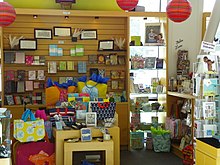
A non-governmental organization (NGO) is an organization that generally is formed independent from government. They are typically nonprofit entities, and many of them are active in humanitarianism or the social sciences; they can also include clubs and associations that provide services to their members and others. NGOs can also be lobby groups for corporations, such as the World Economic Forum. NGOs are distinguished from international and intergovernmental organizations (IOs) in that the latter are more directly involved with sovereign states and their governments.
The American Library Association (ALA) is a nonprofit organization based in the United States that promotes libraries and library education internationally. It is the oldest and largest library association in the world.

A Carnegie library is a library built with money donated by Scottish-American businessman and philanthropist Andrew Carnegie. A total of 2,509 Carnegie libraries were built between 1883 and 1929, including some belonging to public and university library systems. 1,689 were built in the United States, 660 in the United Kingdom and Ireland, 125 in Canada, and 25 others in Australia, South Africa, New Zealand, Serbia, Belgium, France, the Caribbean, Mauritius, Malaysia, and Fiji.

Fundraising or fund-raising is the process of seeking and gathering voluntary financial contributions by engaging individuals, businesses, charitable foundations, or governmental agencies. Although fundraising typically refers to efforts to gather money for non-profit organizations, it is sometimes used to refer to the identification and solicitation of investors or other sources of capital for for-profit enterprises.
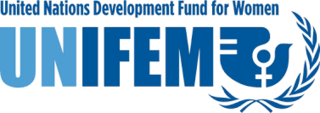
The United Nations Development Fund for Women was established in December 1976 originally as the Voluntary Fund for the United Nations Decade for Women in the International Women's Year. Its first director was Margaret C. Snyder. UNIFEM provided financial and technical assistance to innovative programmes and strategies that promoted women's human rights, political participation and economic security. Since 1976 it supported women's empowerment and gender equality through its programme offices and links with women's organizations in the major regions of the world. Its work on gender responsive budgets began in 1996 in Southern Africa and expanded to include East Africa, Southeast Asia, South Asia, Central America and the Andean region. It worked to increase awareness throughout the UN system of gender responsive budgets as a tool to strengthen economic governance in all countries. In 2011, UNIFEM merged with some other smaller entities to become UN Women.

The Friends of Soviet Russia (FSR) was formally established in the United States on August 9, 1921 as an offshoot of the American Labor Alliance for Trade Relations with Soviet Russia (ALA). It was launched as a "mass organization" dedicated to raising funds for the relief of the extreme famine that swept Soviet Russia in 1921, both in terms of food and clothing for immediate amelioration of the crisis and agricultural tools and equipment for the reconstruction of Soviet agriculture.

Elonnie J. Josey was an African-American activist and librarian. Josey was the first chair of the Black Caucus of the American Library Association, having been instrumental in its formation in 1970; served as president of the American Library Association from 1984 to 1985; and was the author of over 400 books and other publications.
The Alzheimer's Association is a nonprofit voluntary health organization that focuses on Alzheimer's disease care, support and research.
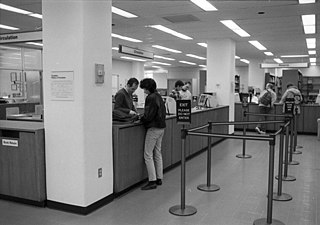
Library circulation or library lending comprises the activities around the lending of library books and other material to users of a lending library. A circulation or lending department is one of the key departments of a library.
The American Association of School Librarians (AASL) is a division of the American Library Association (ALA) that has more than 7,000 members and serves primary school and secondary school librarians in the U.S., Canada, and even internationally. Prior to being established in 1951, school librarians were served by the School Library Section of ALA founded in 1914, which emerged from the Roundtable of Normal and High School Librarians. The mission of the American Association of School Librarians is to empower leaders to transform teaching and learning.
Kitengesa Community Library is a small and successful library in central Uganda. It is part of the Uganda Community Libraries Association and the Friends of African Village Libraries. It received international attention in October 2010 when BBC correspondent Mike Wooldridge did a special report on it for BBC News.
The American Indian Library Association (AILA) is an affiliate of the American Library Association (ALA), and is a membership action group that focuses on the library-related needs of Native Americans and Alaska Natives. The organization's members consist of both individuals and institutions that are interested in improving library services to Native American people in any type of library in the United States.
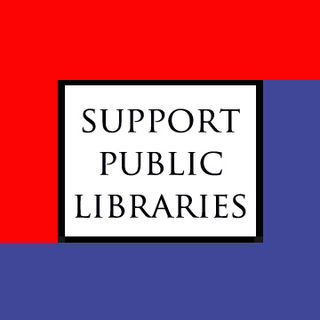
Public library advocacy is support given to a public library for its financial and philosophical goals or needs. Most often this takes the form of monetary or material donations or campaigning to the institutions which oversee the library. Originally, library advocacy was centered on the library itself, but current trends show libraries positioning themselves to demonstrate they provide "economic value to the community."
Public libraries in the American Colonies can be traced back to 1656, when a Boston merchant named Captain Robert Keayne willed his collection of books to the town.
Librarianship and human rights in the U.S. are linked by the philosophy and practice of library and information professionals supporting the rights enumerated in the Universal Declaration of Human Rights (UDHR), particularly the established rights to information, knowledge and free expression.

The Collier County Public Library (CCPL) is the public library system that serves Collier County in the U.S. state of Florida. It consists of 10 locations, including a headquarters library, two regional locations, and 7 branches distributed throughout the service area. CCPL has a print collection of approximately 640,000 volumes, in addition to providing e-resources, audio-visual materials, and programs.
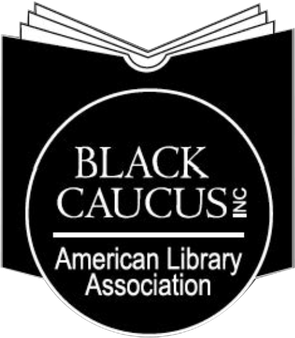
The Black Caucus of the American Library Association (BCALA) is an affiliate of the American Library Association (ALA) that focuses on the needs of African-American library professionals by promoting careers in librarianship, funding literacy initiatives, and providing scholarships.

The woman's club movement was a social movement that took place throughout the United States that established the idea that women had a moral duty and responsibility to transform public policy. While women's organizations had existed earlier, it was not until the Progressive era (1896–1917) that they came to be considered a movement. The first wave of the club movement during the progressive era was started by white, middle-class, Protestant women, and a second phase was led by African-American women.

The Library Services Act (LSA) was passed by the U.S. Congress in 1956. Its purpose was to promote the development of public libraries in rural areas through federal funding. It was passed by the 84th United States Congress as the H.R. 2840 bill, which the 34th President of the United States Dwight D. Eisenhower signed into law on June 19, 1956.
The Volusia County Public Libraries are a group of public libraries found across Volusia County, Florida.


